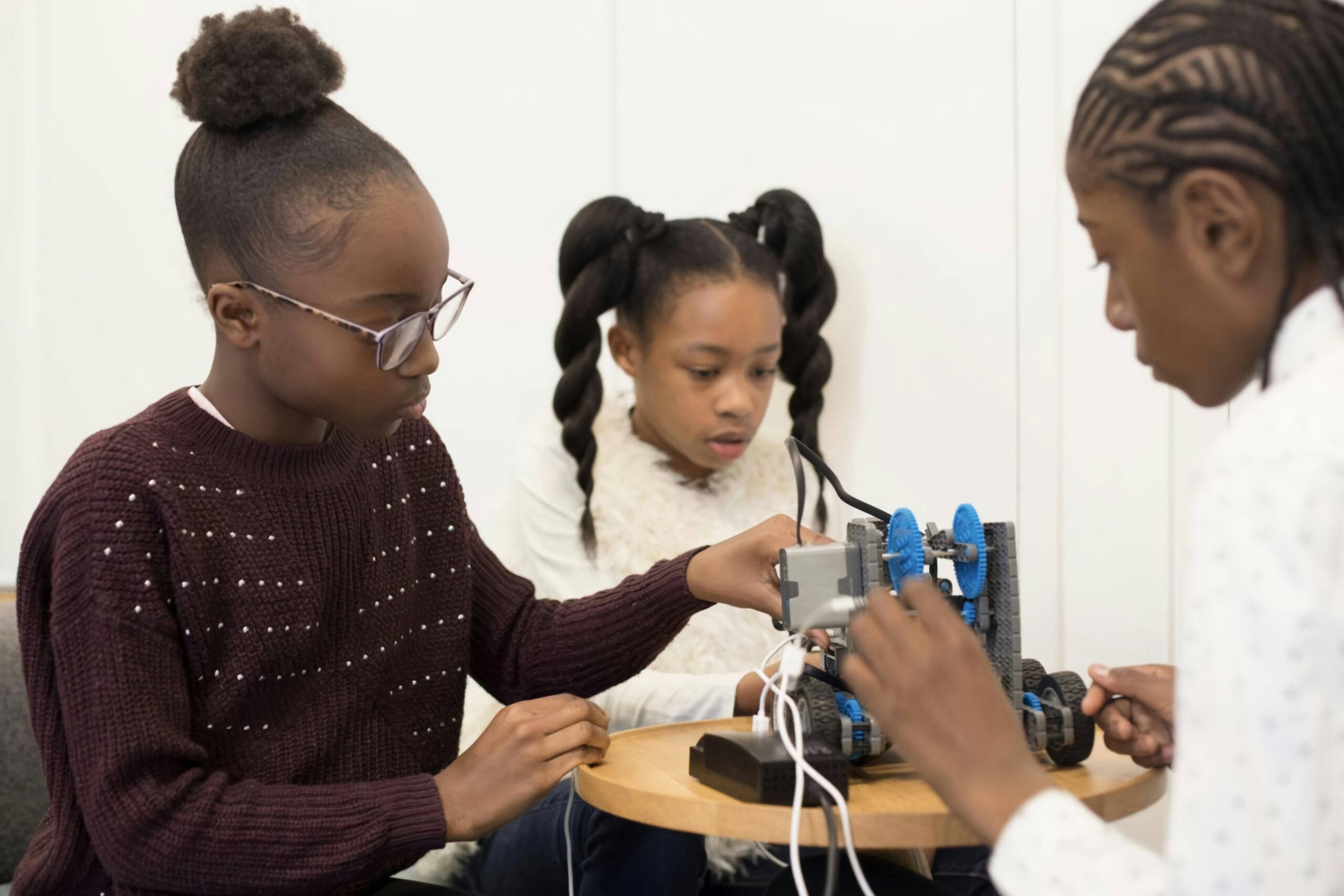When Kelley Cornish received the call nearly three years ago to lead the T.D. Jakes Foundation (TDJF), she was invited into something much bigger than a job title. As president and CEO, Cornish brings nearly four decades of cross-sector leadership into a position that blends purpose with strategy and equity with measurable impact. Under her guidance, TDJF has significantly expanded immersive STEAM (science, technology, engineering, arts, and math) experiences for youth of color, with a specific focus on Black girls. The work responds to a critical gap in an industry where they remain drastically underrepresented.
The foundation’s mission is to advance economic mobility in underserved communities through three core pillars: educational access and workforce readiness, financial inclusion, and community transformation. In 2024 alone, TDJF’s STEAM programming grew by 440 percent, reaching more than 2,500 students through hands-on experiences with AI, robotics, sports analytics, and more. For Cornish, this work is deeply personal.
“I am a Southern girl. I grew up in the Georgia-Carolina area,” she told 21Ninety. “My grandparents and their sisters and brothers really shaped me. They were part of the civil rights movement. We were just literally boots on the ground trying to change the trajectory of our communities, and so that’s all I knew. That stayed with me.”
Facing the Numbers, Building the Pipeline
Despite increasing interest in STEM careers, representation remains low. Black women hold less than 3 percent of tech roles in the U.S. Cornish is quick to note that this is not due to a lack of interest, but a lack of access.
“When I think about the barriers, I think it’s exposure,” she said. “For years, especially in the Black community, there was this myth that boys focused on math and sciences, and young girls needed to be teachers or in the humanities. That’s far from the truth. Women are very creative, very detail-oriented. We just need to start earlier.”
TDJF’s programs aim to do exactly that. With initiatives like their STEAM pop-up camps and the “Distinctively Her” program, a legacy initiative of First Lady Serita Jakes, the foundation introduces children as young as four to real-world STEM environments.
“In June alone, we serviced over 6,000 kids. Over 2,000 of them were young women, specifically in a two-day experience for young girls,” Cornish shared. “We are focused. We want to get this pipeline going so that in 10 years from now, we won’t be having this conversation.”
Beyond Access: Creating Belonging
Cornish emphasizes that representation needs to focus on more than just entry. It should also include presence, power, and belonging.
“They’re still sometimes the only ones in the room — in finance, in tech, in corporate boardrooms,” she said. “We understand that there’s a gap. And at the T.D. Jakes Foundation, we’re focused on filling it — not just with opportunities, but with culture, mentorship, and belonging.”
In a moment when corporations frequently issue public pledges around equity, Cornish draws a clear line between intention and impact.
“We are a trusted voice in our communities,” she said. “We intentionally go after partners that may not have that trust but they have the resources. And we hold them accountable to deliver. Not just sponsor, not just show up once and disappear.”
That credibility, paired with corporate alignment, is where TDJF’s model thrives.
“We have metrics, we have outcomes, we define success before it happens. Don’t send us money and walk away. You’re in it with us as a partner.”
Leading With Legacy, Living With Purpose
Cornish’s decades of experience in corporate DEI leadership have helped shape her expertise and reinforce her purpose. Her style of leadership is rooted in what she calls being “boots on the ground.” It’s a strategy shaped by her upbringing and sharpened over years of navigating boardrooms and building community infrastructure.
“When this whole DE&I work started maybe 30 years ago, we were already doing it in our communities,” she said. “Trying to find a place and a space for people to have a voice.”
Being tapped to lead TDJF at a pivotal moment for Black talent was an affirmation of everything she had prepared for.
“To get the opportunity in a phone call from [Bishop Jakes] personally… I considered it an honor,” she said. “They’ve been doing STEM camps since the early 2000s. To be able to take that now to the next level with their trust and with the credibility I bring from corporate, our goal is for this work to live in perpetuity.”
A New Vision for Economic Mobility
So what does true economic mobility look like for the next generation of Black women? For Cornish, it starts with how people think about wealth.
“You have to learn about money. You have to have a great relationship with money,” she said. “Even when you’re broke, get a wealth advisor. I got mine 25 years ago when I was broke.”
Financial literacy, she adds, is a form of self-preservation and long-term freedom. She wants Gen Z to understand that wealth should be a mindset that can start today.
